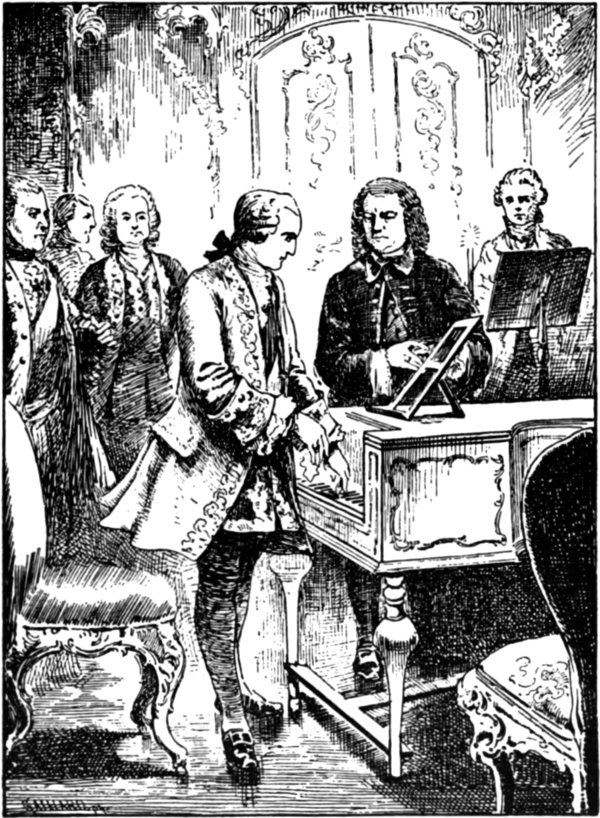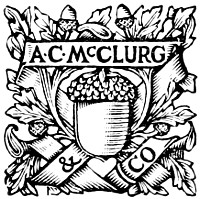

The musical tournament
Life Stories for Young People
JOHANN SEBASTIAN BACH
Translated from the German of
Ludwig Ziemssen
BY
GEORGE P. UPTON
Translator of “Memories,” author of “Upton Handbooks on Music,” editor “Autobiography of Theodore Thomas,” etc., etc.
WITH FIVE ILLUSTRATIONS

CHICAGO
A. C. McCLURG & CO.
1905
Copyright
A. C. McClurg & Co.
1905
Published September 16, 1905
THE UNIVERSITY PRESS, CAMBRIDGE, U.S.A.
Translator’s Preface
There is no person in musical or generalhistory whose life can be studied byyoung people with more advantage, orfollowed in its general characteristics withmore profit than Johann Sebastian Bach. Theold saying that genius is only the highest capacityfor work has sometimes been attributed to him.Whether he originated the saying or not, his lifeillustrates its truth. His industry was astonishing,whether in adverse or prosperous circumstances,though his remuneration, considering the magnitudeof his achievements, now seems a beggarly pittance.He worked for the highest in his art, and alwayswith the utmost of his ability, and consecrated hiswork to the divine honor. Upon all his importantpieces he inscribed the letters, “S. D. G.” (“SoliDeo Gloria”), “to the glory of God alone.” Whatthe simple, God-fearing, art-loving cantor of SaintThomas accomplished, the world knows. Gounodsummed it up in the declaration that if all themusic written since Bach’s time were lost, it couldbe reconstructed upon what he wrote. His lifewas as noble as his music. He was an affectionatefather, laboring manfully and incessantly to supporthis large family; a good citizen, faithfully fulfillinghis duties and commanding universal respect; amusician without an equal in the profundity of hisknowledge and the richness of his productions; thefounder of modern music, the master of the organ,the composer of the highest forms of sacred music;a plain, humble man, despising rank and show,making no boast of his grand achievements, andyet recognized in the court of Frederick the Greatas above courtiers and nobility by the title of hisgenius. “Seest thou a man diligent in business;he shall stand before kings.” He was a self-reliant,self-sustained, evenly poised man, plain andunostentatious in his bearing, honorable in his intercoursewith men, strong and unvarying in his homelove, and guided in every event of life by a strictmorality born of sincere religion. He followed thebent of his genius untrammelled by the accidentsor troubles of life, and sought for no higher rewardthan his own conviction of the worth of his accomplishments.Such a life is to be commendednot only to the young student entering upon theprofession of music, but to every young personentering upon the duties of life. This little volume,therefore, worthily claims a place among “LifeStories for